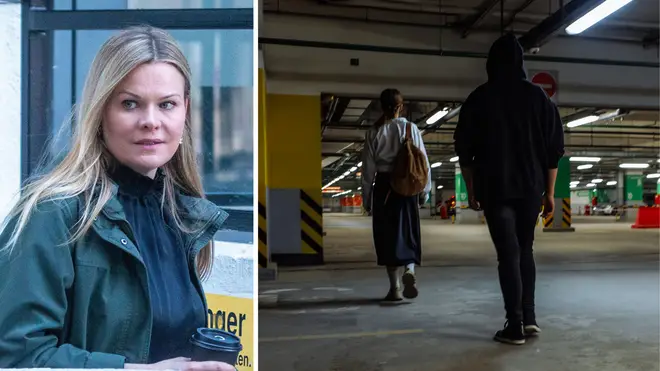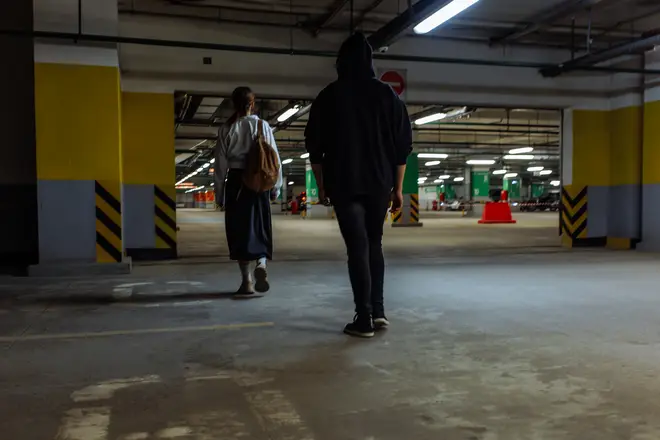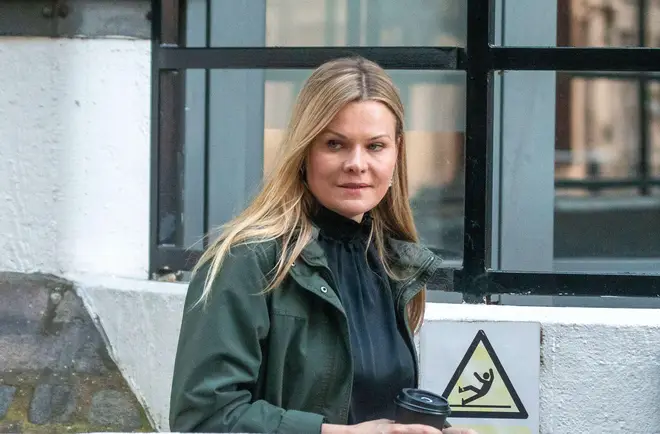
Nick Abbot 10pm - 1am
22 April 2024, 11:37

A leading victims charity has told LBC victims of stalking are being failed at every step of the criminal justice system.
The Susie Lamplugh Trust, which runs the National Stalking Helpline, said there’s still not a deep enough understanding about the crime among police forces and prosecutors.
Jenny* from the South East of England, told LBC about her experience of being stalked and said she felt let down by the officers she reported it to.
“It was a stranger that was stalking me, we had a mutual acquaintance and that was it, and it took a while before I began to realise how this person had engineered themself around my life,” Jenny said.
Read More: Crackdown on stalkers: Government announces stronger protections for victims against abusers

“It was prolific, to the extent where they even moved close to where I lived. It was absolutely terrifying because you start to question what they are trying to achieve apart from me being terrorised every day.
“That was probably more terrifying than the events themself because you don’t know where it’s going to go or how it’s going to end.”
“It’s clearly a misunderstood crime, in my case the incidents in isolation were very benign and everyday stuff but when you put them together, there’s a pattern,” she continued.
“And it feels like the frontline police aren’t really well equipped to deal with those challenging crimes and put them together.”
At the start of National Stalking Week, the Susie Lamplugh Trust has raised concerns at a lack of data around stalking prosecutions, including where crimes are pursued as more minor offences, like harassment or malicious communication.
On a visit to the charity’s helpline in South London, the victims and safeguarding minister Laura Farris announced new guidance for police, to make it easier for stalking protection orders to be applied for through the courts.
She told LBC: “We know we need to do more, when stalking protection orders are applied well we know they work.
“But what we do accept is that the police haven’t always been applying for them as much as they ought to have been.
“That’s why we’re lowering the evidence threshold for them, from the criminal standard - beyond reasonable doubt - to the civil standard - on balance of probabilities - to make it easier to apply for them.”
Stalking Protection Orders - which were introduced in 2020 - allow officers to impose conditions on perpetrators, including for them to not approach or contact their victims and to disclose their travel arrangements.
But figures gathered by the Susie Lamplugh Trust show some police forces have issued fewer than 10 per year.
The charity’s chief executive Emma Lingley-Clark told LBC she’s not convinced an expansion of their use alone will solve the problem.
“Stalking Protection Orders haven’;t been effective at all - across England and Wales they’ve not been used in the way that we’d have hoped and they’re definitely not protecting victims.
“We don’t have enough being issued and we are aware that when they are in place and have been breached, there’s not the enforcement on that breach so, for us, it almost devalues them.
“Ultimately what we’re still faced with is the fact that officers don’t recognise stalking and so until you build evidence around stalking and train them on stalking we’re not going to see an increase of protection orders in that sense.”

Deputy Chief Constable Paul Mills, who leads the national police response to stalking, told LBC forces are aware that they need to make improvements.
“There’s been a lack of reporting around stalking, we’ve been able to increase cases and get more victims to come forward.
“We’re doing a lot of work around the identification of stalking because we know officers find it difficult to identify a stalking case.
“We’re always stretched as a public service but when it comes to safeguarding victims we know with these cases that if you don’t understand and act upon the risk there’s a huge potential for these cases to escalate.
“We have to get this right.”
As part of the government’s announcement, plans are also being put in place to make public sexual harassment a specific offence from 1 October.
*not her real name.